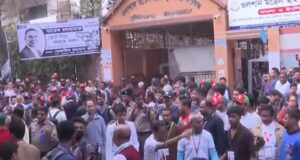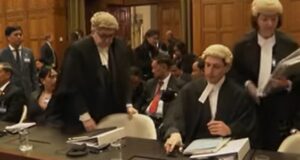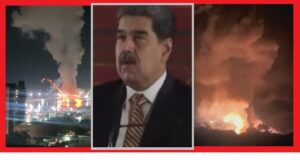![]() As HUMAN AID UK approached the Syrian border the scenery gradually became more mountainous and generally wilder. Before we arrived at our destination village the driver pointed to a road in the distance which he said was the Syrian border, and everything behind it was Syria. As we drove into the village the first thing that struck me was how terrible the conditions seemed, and I was struggling to believe that people were actually able to live there. There was an unmistakeable air of gloom about the place, and I could tell just by looking at the inhabitants that they had some terrible stories to tell.
As HUMAN AID UK approached the Syrian border the scenery gradually became more mountainous and generally wilder. Before we arrived at our destination village the driver pointed to a road in the distance which he said was the Syrian border, and everything behind it was Syria. As we drove into the village the first thing that struck me was how terrible the conditions seemed, and I was struggling to believe that people were actually able to live there. There was an unmistakeable air of gloom about the place, and I could tell just by looking at the inhabitants that they had some terrible stories to tell.
 We were greeted by a small group of Syrian men who took us onto a concrete ledge overlooking the valley that separated Turkey from Syria. One of the men introduced himself to us as Ahmed Abdulwahab, and he immediately began describing the awful conditions he and the other families were living in. He said that he brought his wife and children there a year ago, and has taken it upon himself to help other families escape over the border into safety. He complained to us how difficult this was for him because of a lack of medical supplies, and because of the fire they came under from Assad forces on the border. This confused me as I assumed these mountains were relatively safe, and he explained that the forces had moved into the Syrian houses just over the border and regularly fired into Turkish land at escaping Syrians. He even pointed to some of these houses and said that we were well within sniper range. He also complained that if he does manage to get a family into Turkey and they haven’t been killed or injured, they have very little in the way of food and shelter.
We were greeted by a small group of Syrian men who took us onto a concrete ledge overlooking the valley that separated Turkey from Syria. One of the men introduced himself to us as Ahmed Abdulwahab, and he immediately began describing the awful conditions he and the other families were living in. He said that he brought his wife and children there a year ago, and has taken it upon himself to help other families escape over the border into safety. He complained to us how difficult this was for him because of a lack of medical supplies, and because of the fire they came under from Assad forces on the border. This confused me as I assumed these mountains were relatively safe, and he explained that the forces had moved into the Syrian houses just over the border and regularly fired into Turkish land at escaping Syrians. He even pointed to some of these houses and said that we were well within sniper range. He also complained that if he does manage to get a family into Turkey and they haven’t been killed or injured, they have very little in the way of food and shelter.
He said that the food schedule is inconsistent and sporadic at best, and there is nowhere clean or fit for humans for the families to live. To demonstrate this point further he took me into his own home which he had been living in for a year. The house was a
concrete shell of a building, with makeshift doors and windows, with no furnishing save a threadbare rug on the floor. He showed me his ceiling which was eroded, and he said that in the winter it does very little to keep out the rain and cold. He showed me his three young children who he said have been wearing the same clothes for weeks, and he said that his conditions were better than anyone else’s in the village. Seeing this and hearing his stories made me feel incredibly embarrassed as I remembered my own room back home and how much better it is than this entire family's house. But this was nothing compared to how I was about to feel in the next village.
 We continued driving further towards the border to another village. When we stopped and got out all I could think about was how close we were to Syria. It was a surreal moment for me, as it occurred to me that just 200 meters away was a land full of oppression, injustice and severe suffering, and at the same time I couldn’t help but marvel at just how beautiful Syria looked. We were taken to a rooftop of one of the houses by a group of Syrian men. They confirmed to me the same stories that the man in the previous village narrated to us.
We continued driving further towards the border to another village. When we stopped and got out all I could think about was how close we were to Syria. It was a surreal moment for me, as it occurred to me that just 200 meters away was a land full of oppression, injustice and severe suffering, and at the same time I couldn’t help but marvel at just how beautiful Syria looked. We were taken to a rooftop of one of the houses by a group of Syrian men. They confirmed to me the same stories that the man in the previous village narrated to us.
However because this village was closer to the border than the other, it was subject to a lot worse. They told us that only that morning at 1am they came under fire from Assad forces. One of the men was more involved bringing families across the border than the rest, and he told us of some of the close calls he’s had. He told us of one particular situation where he was accompanying a family and they had just reached the border, and one of the men stepped on a mine and was killed. Since then he’s had to be particularly careful of the mines laid by the regime, but despite this wariness five people had died from land mines since. He continued telling me story upon gut wrenching story about the carnage going on just over the mountains, and he finished off with a sentence that I will find very difficult to forget. He said that if the same massacre was to happen to animals then the whole world would have risen by now, to which I had no response. I knew he was right.
 East London News A Force for the community…
East London News A Force for the community…



